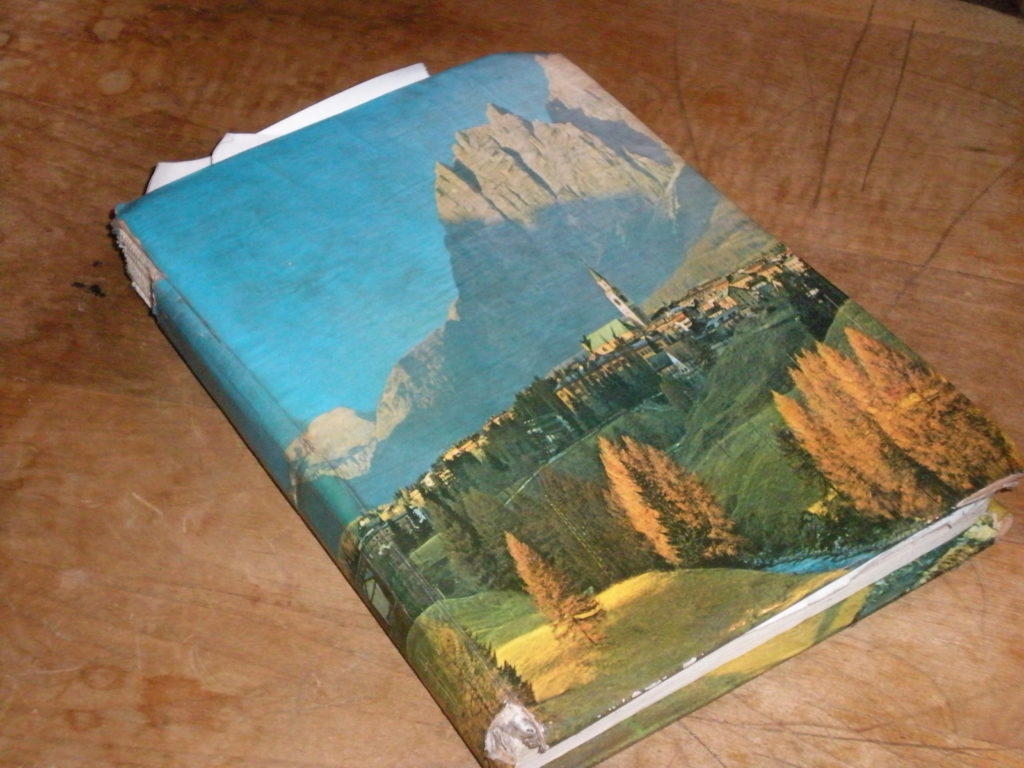UNITED STATES—In “The Summing Up” W. Somerset Maugham rawly states, “I have never kept a diary. I wish now that during the year that followed my first success as a dramatist I had done so, for I met many persons of consequence, and it might have proved an interesting document.” For me having a journal covering the dates in my 1989-1992 memoir has been a bane and a blessing. It contains many passages and names of people exiled from memory, while others invoke a turmoil. Yet the blessings contained outweigh the curses.
Faced by the pressures of my publishing schedule, I often scanned it quickly to hunt down a specific date or to grasp the chronology. As I have delved more into its pages I have found, embarrassingly, after the story has been set to paper, the journal will be at odds with how I remembered it, or else there are facets, as with the Moorehead case, that are too complicated for easy narrating. I recently discovered, for example, a mention in early 1992 about the aggrieved tenant getting a check for several hundred dollars from the owners—was it his security deposit? This note, buried in the diary, means he got some recompense after all the trouble, but that wasn’t how I’ve remembered it all these years.
In the course of this memoir, how I remembered things has become paramount. Historical truth is for the historians.
Here’s one of the real finds from the diary pages, 19 May 1991: “The parade in Hollywood honoring the troops from the Persian Gulf. Some friends of Jill were among a group of pacifists. An Abrams tank stopped right in front of them during the parade. The turret rotated and the barrels came to stop right in front of the pacicfists. The people in the crowd shouted ‘Kill them! Kill them’.”
I really can’t comment other than to say who was Jill? She was a pacifist. If you really want to chew on this tank on Hollywood Boulevard. snapshot, let’s meet at Musso and Frank’s bar, we’ll talk over a dry martini.
Here’s one that really throws a wrench into my intuitive version of ‘how it was.’ 7 May 1991. “To Montebello again [reference to hailing nasty old mattressed from the Skid Row flophouse Wylie owned]. A slow day in the room rental business. I showed one room to a Mr. Klink from Phoenix, Arizona,” and then the surprise, “I met Maya in Hollywood tonight. We walked along Hollywood Boulevard, La Brea and Sunset.” This shakes loose memories of visiting the Hollywood Wax Museum and admiring the creepy accuracy of some figures while laughing at others, and there is personal drama. “They have fired her from her job as secretary, lives in a room with her friend John. Now she’s going to get into music . . . .” So much for the no-nonsense person from Worcester, MA, a breath of fresh air: she seemed to have gone terribly LA in this last appearance in the journal. But this is deceptive: her gospel passion and clear voice were great musical assets and her honest East Coast brashness remained after losing her job, a consequence of a flaky boss’ downsizing.
I reflect, there’s something about Los Angeles makes it too easy to cut off people, and it happens sometimes without our willing it to happen. The ebb and flow of the enormous city push us apart. In the “true” chronology that bleak last phone call to Maya—that message unanswered—remembered so much earlier, actually came a year later when I was riding high.
That’s something about Los Angeles, too. After the long struggle, paying your dues, and finally reaping the reward, there descends a moment of goodwill and that goodwill coincided that the post-holiday season…I picked up the phone and called Maya, to make amends and tell about my good fortune. She had been so supportive of my screenplay, “The Strawberry Butterfly.” Her response when she heard me talking about Freddy Sloane, the pudgy geek who gets befriended by the “cool” Satan worshipers, gave me a shine: from his name alone she said she immediately knew this awkward kid and his dilemma. So did another filmmaker who read the screenplay as I passed it around town.
Grady Miller is a humorist. He is author of the Hollywood humor collection, “Later Bloomer.”




